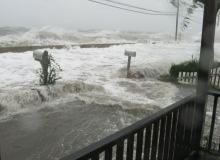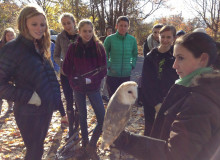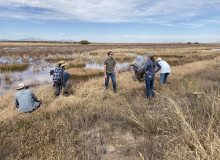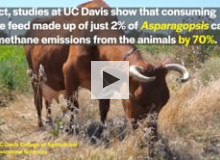climate change
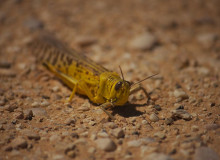
A recent investigation into the devastating desert locust outbreak spreading across East Africa has led me to some troublesome conclusions on the problematic nature of media coverage on Africa in the United States. (Adam Matan/Creative Commons)
Planet Forward Senior Correspondent
A recent investigation into the devastating locust outbreak spreading across East Africa has led me to some troublesome conclusions on the problematic nature of media coverage on Africa in the United States.
Planet Forward Senior Correspondent
Here are five easy, innovative, and free ways that students can reduce their impact on the environment right now, by using the technology that is at their fingertips.
Digital Editor, Planet Forward
Here are our key takeaways from TV media experts on how to create lasting climate communication that won’t get washed away in the rising tides.
The George Washington University
An investigation into whether or not plant-based burgers deserve all the hype.
George Washington University
Growing up in a beach house in a town that comes alive in the summer was paradise. But it will soon be paradise submerged.
University of Vermont
Toward the end of Sasco Creek Road in Westport, Connecticut, passersby witness a charming landscape change. The typical residential street opens up to a vast meadow where grasses tickle the waists of hikers and birdwatchers. Goldfinches whiz by in... Read More
Planet Forward Senior Correspondent
A Buddhist Monk in Myanmar believes we can fight climate change through the power of mindfulness and positivity.
Arizona State University
Monarch populations have declined steeply in the past decades, but to reverse the trend, the Western Association of Fish and Wildlife Agencies instituted the Western Monarch Butterfly Conservation Plan, a 50-year effort to help the monarchs bounce... Read More
George Washington University
Small-scale fisheries are critically important to communities around from the world, from Alaska to Senegal, but they don't receive attention on a global level.
George Washington University
Scientists from the University of California have found that altering cow’s diets by adding seaweed to their feed may just be the next big solution to halt climate change.



